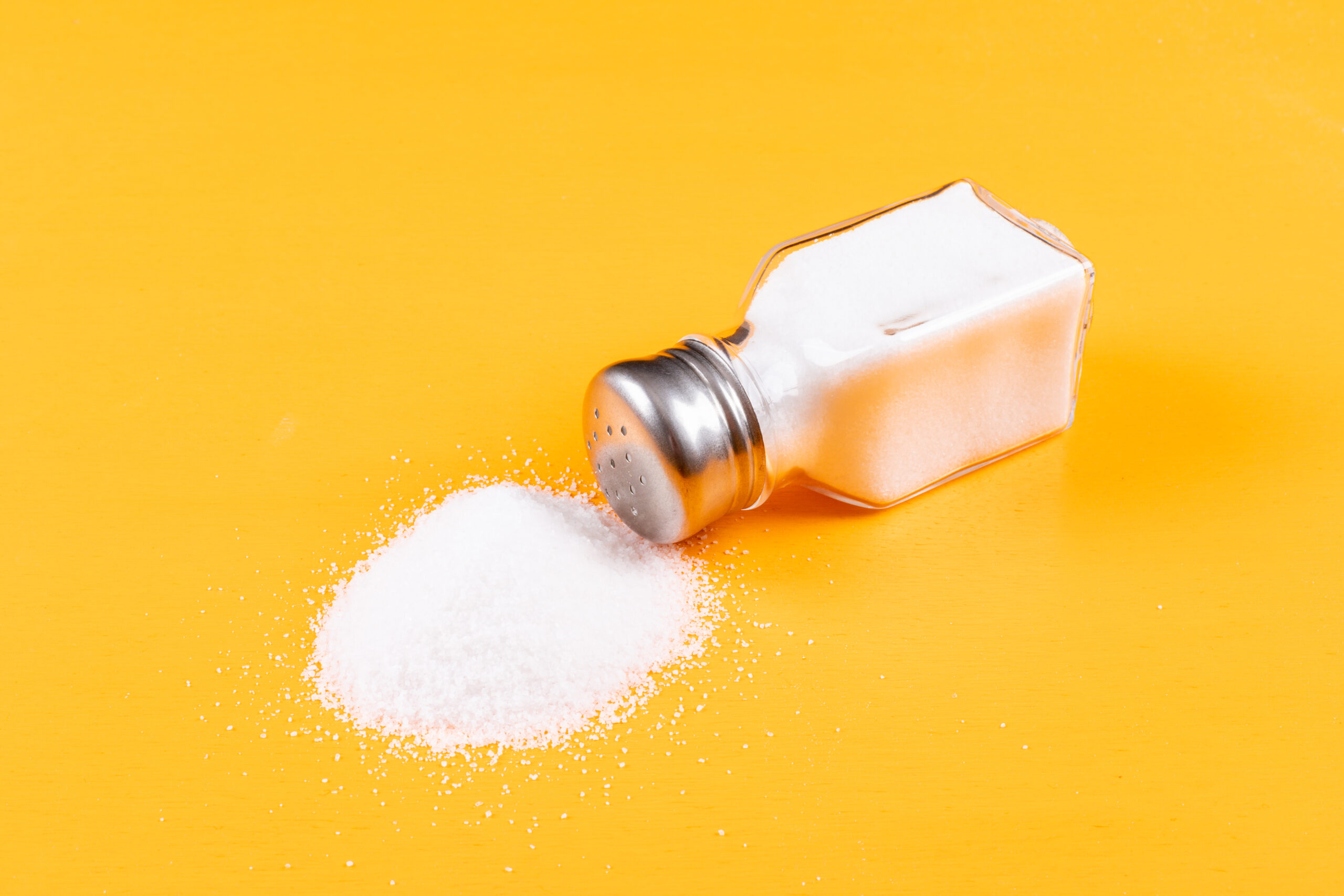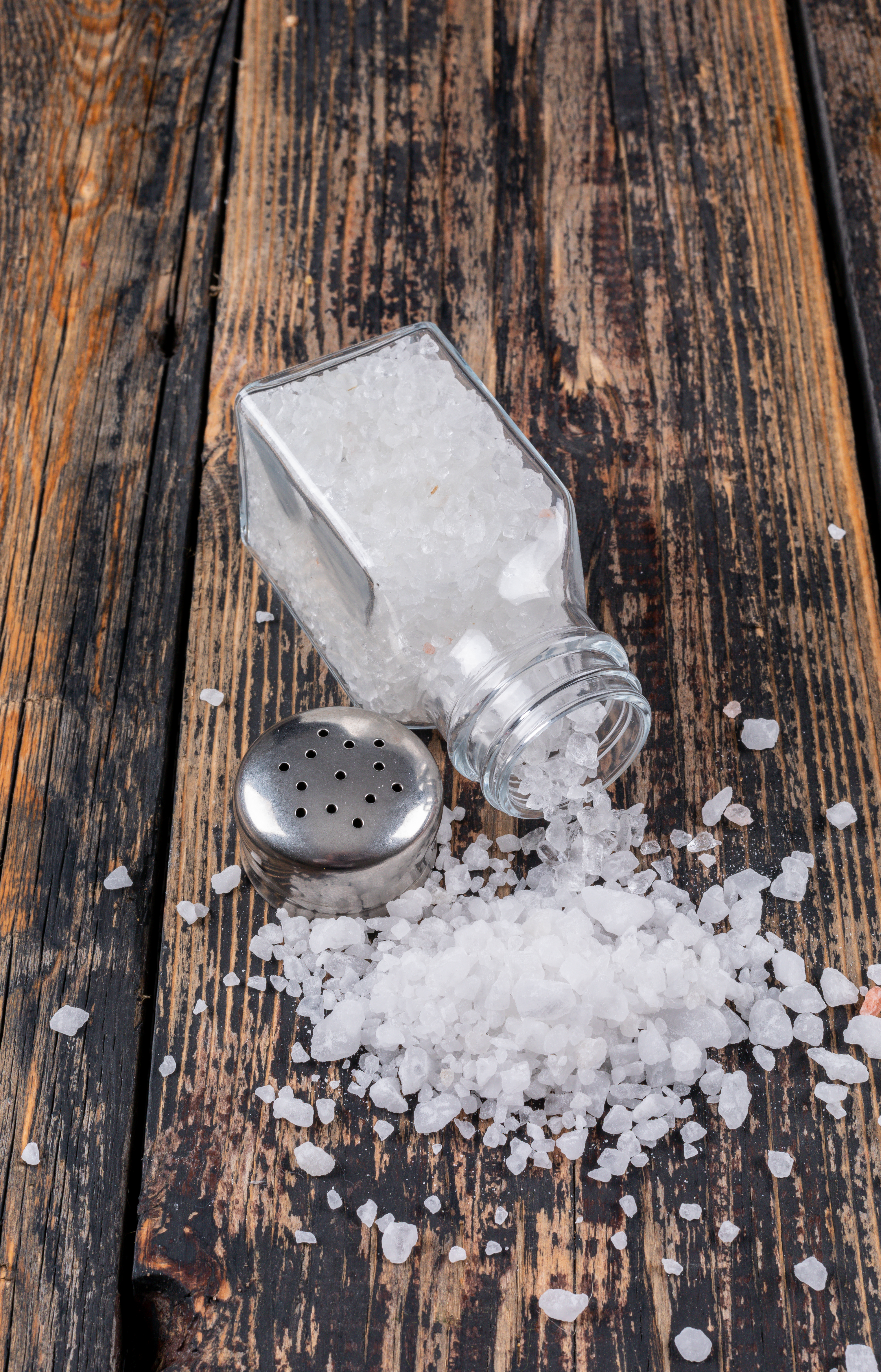Salt Trick for Harder
Is the so-called Salt Trick for Harder more than just internet hype? In recent months, online platforms—from YouTube shorts to TikTok clips—have been flooded with claims that a quick pinch of salt (or blue salt), when ingested or applied topically, can dramatically increase male sexual performance.
Promises range from “rock-hard erections in 15 seconds” to “biochemical biohacks” and “ancient nutritional secrets.” But how much of this is science-backed, and how much is simply clever clickbait?
If you’ve landed here, chances are you’re curious—perhaps skeptical—about this trend. You may have even come across pitchy videos or pop-up ads featuring deepfake celebrities hawking this miracle trick.
The goal of this article is to cut through noise and confusion, digging through the available evidence and providing clarity: what is known, what is myth, and what’s smarter to do with your salt shaker (or your doctor’s referral).

What Even Is the Salt Trick for Harder?
🧂 The Mechanics of the Claim
At its core, the Salt Trick for Harder is marketed as a simple, 15‑second solution to erectile dysfunction (ED). One quick pinch—like table salt or exotic blue salt—is mixed into water, soda, or even applied under the tongue or topically. Alleged benefits include:
- Increased nitric oxide levels (promoting vasodilation and blood flow)
- Enhanced stamina or arousal
- Immediate firmness and “performance boost”
- Regeneration of youthful energy
Some versions mix salt with other chant-worthy powders like baking soda, lemon juice, apple cider vinegar, cinnamon, or even cayenne pepper—presented as secret “potency blends.”
🍽️ The Salt Varieties Being Pushed
- Table Salt (sodium chloride): Easily accessible but discredited by most medical experts when it comes to performance benefits.
- Blue Salt: Often claimed to be “high‑potassium, low‑sodium,” exotic Himalayan or Iranian salts. Marketed as healthier versions with specialty mineral profiles.
Yet across all content, actual dosage instructions are either vague or buried behind paywalls.
Unpacking the Evidence: What the Experts Say
🔬 No Peer‑Reviewed Basis
Consulting credible medical sources reveals a stark reality: there is no peer‑reviewed evidence supporting the use of salt—of any kind—to reliably improve erectile function.
In fact, leading urologists emphasize high sodium intake typically worsens blood pressure and vascular health—key components of erectile physiology.
🩺 Expert Quotes
Dr. Justin Houman, urologist at Cedars-Sinai, is blunt:
“There’s currently no scientific evidence to suggest that consuming salt—or applying it to the body—improves erectile function. While blood flow is crucial for erections, excess salt intake is more commonly associated with worsening vascular health, not improving it.”
Additionally, high sodium may cause:
- Hypertension
- Arterial stiffening
- Endothelial dysfunction
- Reduced nitric oxide availability
All of which worsen—not improve—erections.
Where Did This Trend Come From?
📈 Surge in Search Interest
The phrase “salt trick for men” began gaining traction in late September 2024, coinciding with TikTok and YouTube Shorts videos promoting it. Suddenly, there was:
- Dubbed videos with anonymous influencers
- Deepfake celebrity narrations (“Stallone,” “Tyson”)
- Links to “secret sites” with miracle formulas
💰 Are These Advertisements or Scams?
Reddit posts clearly identify this as a scam strategy: flashy ads, mysterious sites, celebrity deepfakes, and always selling some proprietary supplement—after baiting you with a “secret trick”.
One top comment on r/Scams explains:
“It’s just to make you curious enough to click on it. Once they have you, they either sell you snake oil, scam you, or phish you.”
So yes—these ads are powered by profit, not science.
How Might Salt or Electrolytes Affect Sexual Health?
⚖️ Sodium and Cardiovascular Health
- The World Health Organization recommends no more than 2,000 mg sodium (~5 g salt) per day.
- Optimal vascular health requires even less (~1,500 mg).
- Chronic high-sodium consumption raises blood pressure and stiffens arteries—both directly linked to ED
🧂 Potassium vs. Sodium
Blue salt is often promoted for its potassium content, said to promote nitric oxide production and vasodilation—but realistically:
- You’d need full meals of potassium-rich foods (bananas, spinach) to meaningfully impact health.
- A quarter teaspoon of blue salt yields ~200 mg of potassium—less than what’s in dried apricots or a banana.
- High potassium intake without medical supervision can trigger dangerous issues—especially in kidney disease .
Safety Concerns Around Overdosing on “Salt Hacks”
🚨 Sodium Overload Risks
- In excess, salt worsens hypertension, damages endothelium, and causes arterial stiffness—impairing blood flow rather than improving it .
- Potassium-rich salts can lead to hyperkalemia in those with kidney dysfunction—and yes, that can trigger cardiac arrest .
🌿 Unverified Ingredient Dangers
Many “salt trick” recipes include undisclosed herbs or powders. Without strict regulation, these:
- Could interact with medications
- Exacerbate blood pressure issues
- Create unexpected side effects
Taking such blends is gambling with your health.
Alternatives That Do Work for Erectile Health
If you’re seeking real solutions that improve sexual function, consider evidence-backed interventions:
🔹 Lifestyle Modifications
- Diet
- Reduce sodium
- Add potassium-rich foods (bananas, leafy greens)
- Regular Exercise
- 30–60 min aerobic exercise, 3–5× per week shown to reduce ED risk
- A 2018 study: 40 min, 4×/week for 6 months improved symptoms significantly
- Weight Management
- Losing excess weight improves cardiovascular and erectile health
🔹 Communication & Mental Health
- Psychological stress and performance anxiety fuel ED
- Open conversations with your partner, therapy approaches, or guided relaxation can aid function
🔹 Medical Therapies
- PDE5 inhibitors (Viagra, Cialis) are first-line and highly effective
- Generic forms like sildenafil and tadalafil greatly reduce cost
- Other options: daily regimens, dissolvable formats, injectable treatments supervised by physicians
Collectively, these strategies are scientifically proven—to reduce ED risk and improve well-being—in stark contrast to the salt trick’s lack of evidence.
Why Salt Pitches Thrive Online
🎣 Clickbait Culture
- “One weird trick” headlines grab attention and curiosity
- Short videos and deepfakes elevate drama and trust
- Affiliate marketing models monetize clicks and data, not genuine outcomes
🔒 The Gates Remain Closed
- No full recipe—always “click here” to buy snakeoil
- No medical disclaimers, no backed-up results—just testimonials
🔐 Misinformation Loops
- When “experts” claim blue salt supercharges blood flow, it preys on desperation
- Marketing twists “natural” with exotic elements to justify price premiums
All of which are hallmarks of typical online health scams.

Your Health, Your Power: Smart Moves Over Salt Myths
✅ Ask: “Where’s the proof?”
- Does anyone cite clinical data or placebo-controlled trials?
- Does a credentialed physician explain the dose, side effects, long-term safety?
✅ Check the ingredients
- What salts are used, and why—for the claim?
- Can you verify the mineral profile and source?
- Are dubious powders involved?
✅ Talk to a healthcare provider
- A urologist or primary physician can test and guide treatment
- Blood pressure, cardiovascular health, and hormone levels might be key factors
TL;DR Summary
| Topic | Key Takeaway |
| Salt Trick for Harder | No scientific evidence. Risks outweigh potential benefits |
| Sodium | High intake increases ED risk, artery damage, hypertension |
| Blue Salt (Potassium) | May contain minerals, but dose is too small—get potassium from diet |
| Deepfake Ads | These are scam tactics; not expert endorsements |
| Evidence‑based interventions | Diet, exercise, therapy, prescription medications—proven impactful |
Final Word
The Salt Trick for Harder is, in all likelihood, a marketing gimmick. It trades on your hopes, uses false authority and seductive design, and falls apart under serious scientific scrutiny.
Real results come from smart, long-term strategies:
- Mindful diet adjustments
- Regular physical activity
- Mental health support
- Medical therapies backed by research
Before sprinkling salt or shelling out on ads, talk to your doctor. Understand your body, blood pressure, hormones—and set yourself up for lasting gains rather than flashing short-term promises.
Your health is worth more than salt illusions.
References
- https://ro.co/erectile-dysfunction/salt-trick-for-men
- https://www.wftv.com/news/what-is-salt-trick-men-is-it-secret-improved-intimacy/WEVMUVAN45JYFMLMWKVVRUIJH4
- https://finance.yahoo.com/news/salt-trick-men-does-ancient-224100557.html
- https://www.reddit.com/r/Scams/comments/1incbic/i_keep_getting_very_adult_oriented_youtube_ads
- https://www.health.harvard.edu/mens-health/erectile-dysfunction-linked-to-heart-disease